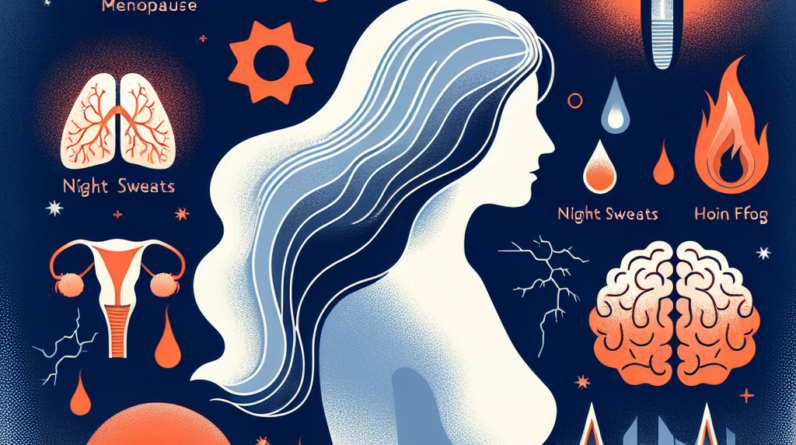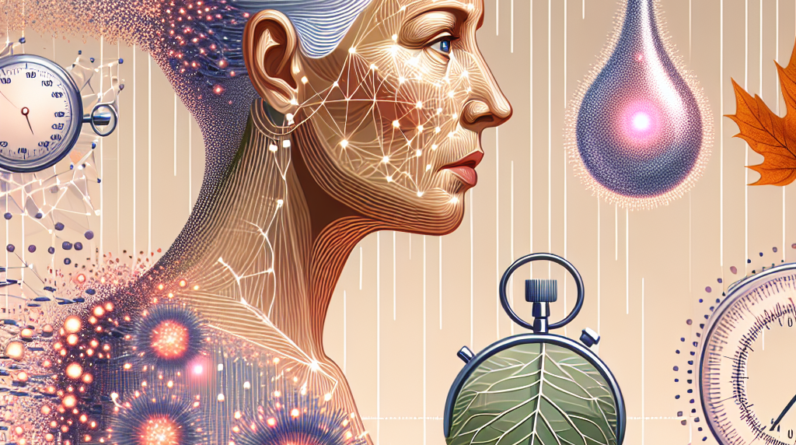
Are you experiencing unexplained weight gain, hair loss, or forgetfulness? These, along with other unusual symptoms, may be signs of menopause. While hot flashes and mood swings are well-known symptoms, there are several lesser-known indicators that often go unnoticed. In this article, we will explore these uncommon signs of menopause and provide helpful tips on how to treat the issues they may cause. So, if you’re curious to learn more about the unusual symptoms of menopause, keep reading!
Unusual Symptoms Of Menopause
Menopause is a natural phase of life that every woman experiences at some point. It marks the end of reproductive years and brings about hormonal changes in the body. While most people are familiar with common symptoms like hot flashes and mood swings, there are some unusual symptoms of menopause that you may not be aware of. In this article, we will explore these symptoms and provide insights on how to manage them effectively.

Vaginal Dryness
One of the most prevalent and often overlooked symptoms of menopause is vaginal dryness. As estrogen levels drop during this stage, it can lead to a lack of lubrication in the vaginal area. This can cause discomfort, itchiness, and pain during sexual intercourse. Fortunately, there are various methods to alleviate this symptom. Using water-based lubricants, staying hydrated, and considering hormone replacement therapy (HRT) can help combat vaginal dryness and make intimacy more comfortable.
Insomnia
Many women experience difficulty sleeping or insomnia during menopause. Hormonal changes can disrupt the sleep-wake cycle, leading to frequent awakenings throughout the night. This lack of quality sleep can have a significant impact on daily life, causing fatigue, irritability, and difficulty concentrating. To combat insomnia, establishing a regular sleep routine, creating a calm sleeping environment, practicing relaxation techniques, and avoiding caffeine and electronic devices before bedtime can be beneficial.
Hair Thinning
Hair thinning or excessive hair shedding can be distressing for women going through menopause. Declining estrogen levels can affect the hair growth cycle and lead to increased hair loss. Additionally, hormonal imbalances may cause hair to become dry, brittle, and less dense. While preventing hair thinning completely may be challenging, certain measures can help minimize its impact. Opting for gentle hair care products, maintaining a balanced diet rich in vitamins and minerals, and considering hair supplements recommended by healthcare professionals can promote healthier hair growth.
Memory Problems
Memory problems, commonly referred to as “brain fog,” are another unusual symptom that some women experience during menopause. Difficulty concentrating, forgetfulness, and short-term memory lapses can be frustrating and affect daily life. These symptoms may be attributed to hormonal fluctuations and sleep disturbances. Engaging in mental exercises, such as puzzles and memory games, practicing stress management techniques, and ensuring adequate sleep can help combat memory problems.

Weight Gain
Weight gain is often associated with menopause due to hormonal changes and a decrease in metabolism. The distribution of weight may also shift, leading to an increase in belly fat. This weight gain can be challenging to manage, but making certain lifestyle changes can have a positive impact. Regular physical activity, such as aerobic exercise and strength training, can help maintain muscle mass and boost metabolism. Following a balanced diet that focuses on nutrient-dense foods and controlling portion sizes can also aid in managing weight during menopause.
Joint Pain
Joint pain is a lesser-known symptom that can accompany menopause. Decreased estrogen levels can contribute to joint inflammation and stiffness, leading to discomfort and reduced mobility. Engaging in regular low-impact exercises, such as swimming or cycling, can help alleviate joint pain and maintain joint flexibility. Applying heat or cold therapy, using over-the-counter pain relievers, and discussing specific treatment options with a healthcare professional can also provide relief.
Increased Anxiety
While it is not uncommon to experience mood swings during menopause, some women may also experience heightened levels of anxiety. Hormonal fluctuations can impact neurotransmitters in the brain, leading to increased feelings of worry, restlessness, and panic. Adopting stress management techniques, such as deep breathing exercises, practicing mindfulness or meditation, engaging in regular physical activity, and seeking support from loved ones or a therapist, can help reduce anxiety and improve overall well-being.
Electric Shocks
An unusual symptom that can catch women off guard during menopause is sudden electric shock-like sensations commonly known as “brain zaps.” These sensations, often felt in the head or upper body, can be startling and uncomfortable. While the exact cause of these shocks is unknown, they may be related to hormonal fluctuations and changes in the nervous system. If these electric shocks become frequent or distressing, consulting with a healthcare professional is advised.
Bad Breath
Another unexpected symptom that some women may experience during menopause is bad breath or changes in oral health. Hormonal fluctuations can affect the composition of saliva, leading to dry mouth and an increased risk of dental problems. Maintaining good oral hygiene, including regular brushing, flossing, and dental check-ups, staying hydrated, and using sugar-free gum or mints can help combat bad breath and maintain optimal oral health.
Heart Palpitations
Heart palpitations, a sensation of a rapid or irregular heartbeat, can occur during menopause and may feel alarming. Estrogen fluctuations can affect the autonomic nervous system, leading to heart rate changes. While most palpitations are benign, it is important to discuss any concerning symptoms with a healthcare professional to rule out any underlying heart conditions. Managing stress, avoiding triggers like caffeine and nicotine, and maintaining a healthy lifestyle can help reduce the frequency and intensity of heart palpitations.
In conclusion, menopause encompasses various physical and emotional changes, and it is essential to be aware of the unusual symptoms that can accompany this life transition. By understanding and addressing these symptoms proactively, women can navigate menopause with greater comfort and well-being. Remember, seeking guidance from healthcare professionals and implementing healthy lifestyle habits can make a significant difference in managing and reducing the impact of these unique menopausal symptoms.







